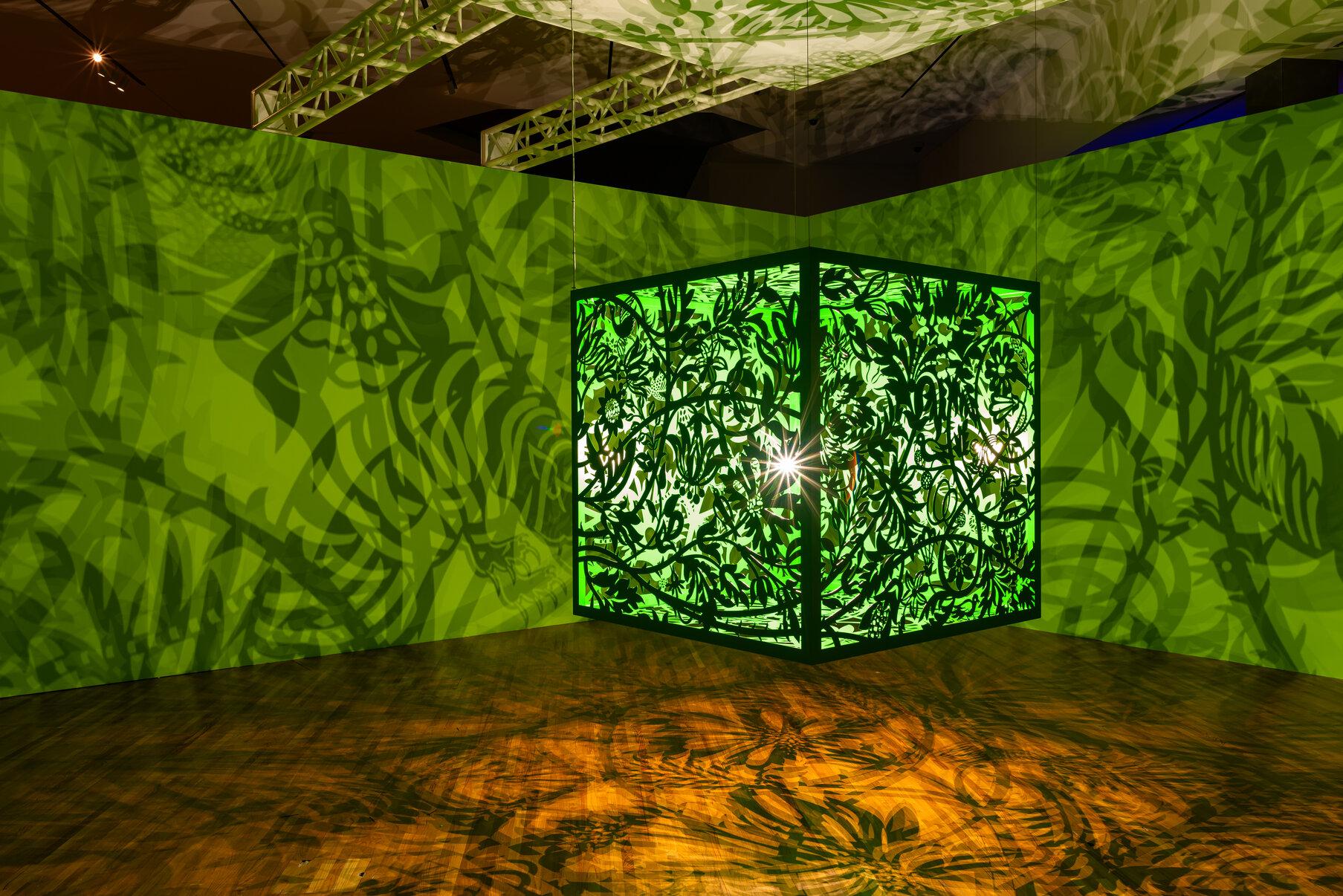by D. Dominick Lombardi
It is commonly thought that in Western Art, the interest in representing the landscape as part of a paintings composition cropped up during the time of the Renaissance. From the beginning, representations of the landscape have brought the viewer to virtually experience new places throughout time, offering a sense of discovery, a feeling of hope for a better more peaceful world. More recently, a truer understanding of the force and fragility of nature has come to the fore motivated by politics, profit and pleasure. For this exhibition, I have selected paintings, sculptures, archival pigment prints, ceramics, dioramas and collages that offer a variety of contemporary views regarding the state of the genre.
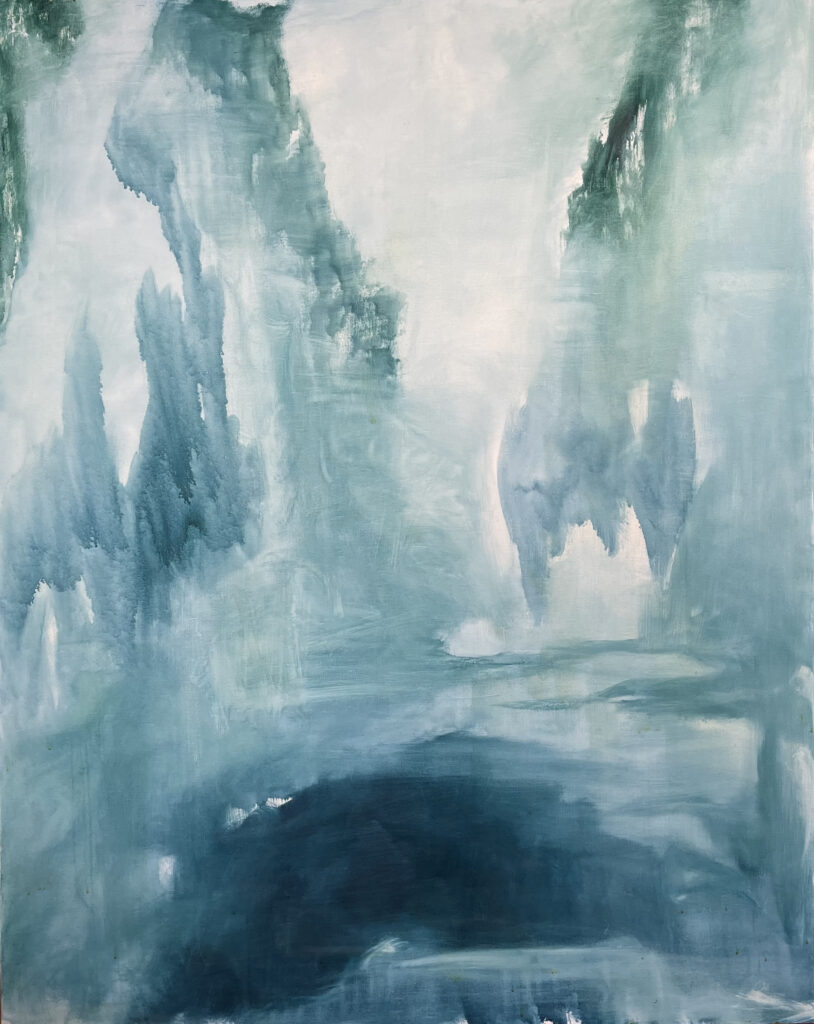
Beginning with the shear awesomeness of nature and all its endless contemplations, Todd Bartel offers Garden Study (Surrender to Vastness), 2002, where we find a lone figure standing in stereoscope, at the edge of a great canyon. One quote in the composition reads: “…to reach the limits of space would be to arrive at our own origins, at the place where life began.” – Jean Clair. Contrasting this great work are two more humorous objects that blatantly addresses a concern for the environment as Bartel channels Man Ray’s iconic sculpture, The Gift, 1921.
Cecilia Whittaker-Doe takes us through a wooded walk as horizons shift, planes tilt, rivers reappear and color intensifies. Despite the cubist calamity, there seems to be an odd sort of order to it all, as if each part both supports and contrasts the other. In the end, we are left with a far more sensory experience than we might expect, as our attention is rewarded with a beautifully composed, tactile trip.
Don Doe focuses on the strain of our rising rivers in two paintings: Johnstown Flood No. 91 (1995) and June with my GTO in the Rising Mississippi Delta Flood No. 10 (1993). Employing dark humor, Doe’s subjects seem to be unaffected by the imposing destruction of the rushing water long enough to record the scene on canvas. The overall impression is acceptance, especially when looked at through the lens of current day political ploys and punditry.
Into the Falls (2016) by Inness Hancock takes us to a place where representation and abstraction coalesce. Movement is key here, as thin veils of blue rain down upon the depths of a deep darkening pond. The contrast between the thin washes at the top and middle of the canvas, and the weight of the deep blue pool below anchors the composition and our thoughts as both time and thought wonder.
Patrick Jacobs has the unique ability to take the most complex and compelling fantasy and turn it into an intimate physical reality. His dioramas redefine the genre with otherworldly color, light, form and space resulting in stunningly spectacular worlds that only he could imagine. After seeing Jacobs work, one’s general state of mind may experience a shift, more likely the memory of the work will become fixed in your subconscious, and very possibly dreaming will become easier.
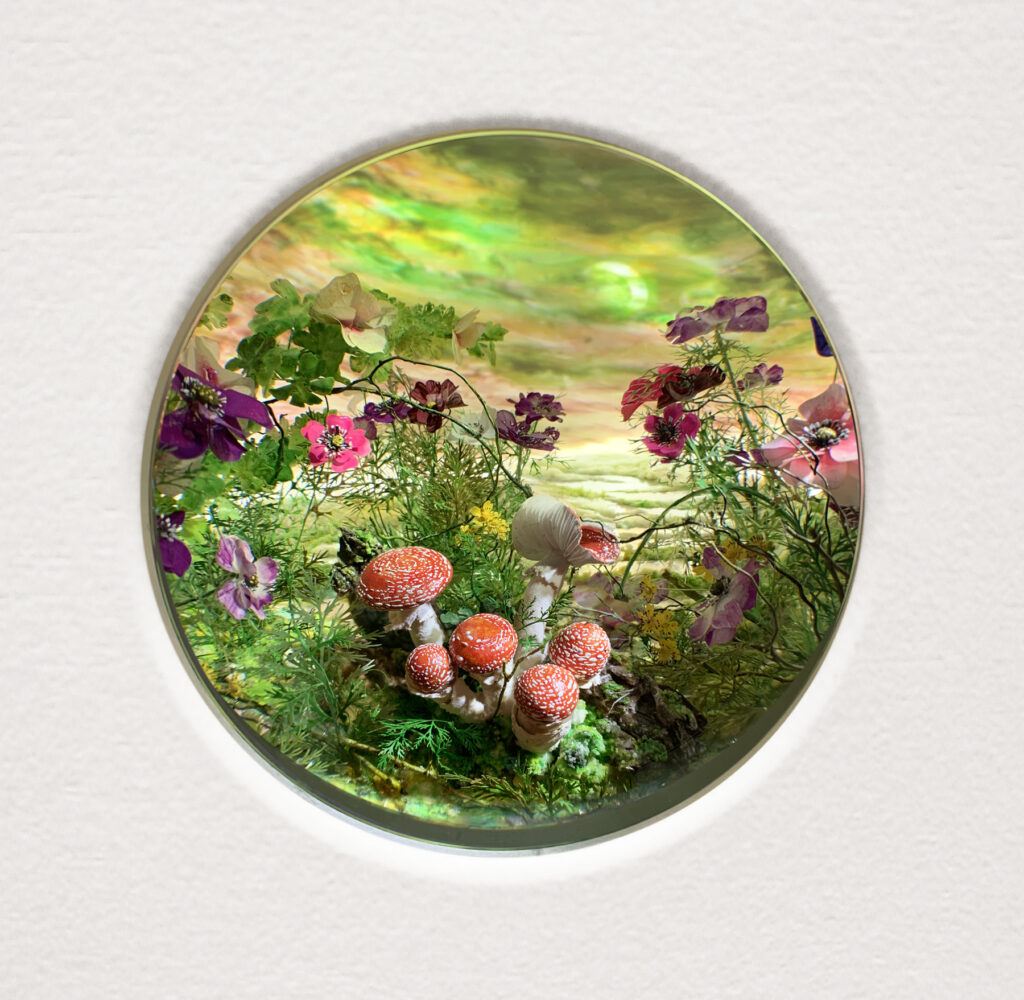
China Marks makes beautifully constructed, fantastical narratives that delight the eye and broaden the mind. Her way of capturing a complex moment with such dizzying directness is key, while her sense of color, composition and actual conversation makes the trip all the more worth while. I can’t imagine any point in one’s life where you could not gain insight or enjoy looking at Marks’ work. – it’s all just a matter of time and willingness to seek and find.
The archival pigment prints of Creighton Michael reside somewhere between consciousness and subconsciousness – an in-between state that is not unlike Surrealism. More importantly, Michael’s art reflects something of a waking-dream state where reality and memory prove to be deceiving. It is hard to pinpoint exactly what part of Michael’s art takes us to this place, but we know we are there and it is simultaneously, both otherworldly and familiar.
Brant Moorefield’s paintings teeter between perception and reality. Perception, meaning the artist’s inner thoughts, what is internalized and later expressed, even if it does not directly relate to the reality. As a result, we find ourselves caught between dimensions, in a place where the psychological supersedes the actual. There are references to displacement, disorder, deconstruction, and yet there seems to be an overriding sense of resolve and perhaps a bit of redemption to it all.
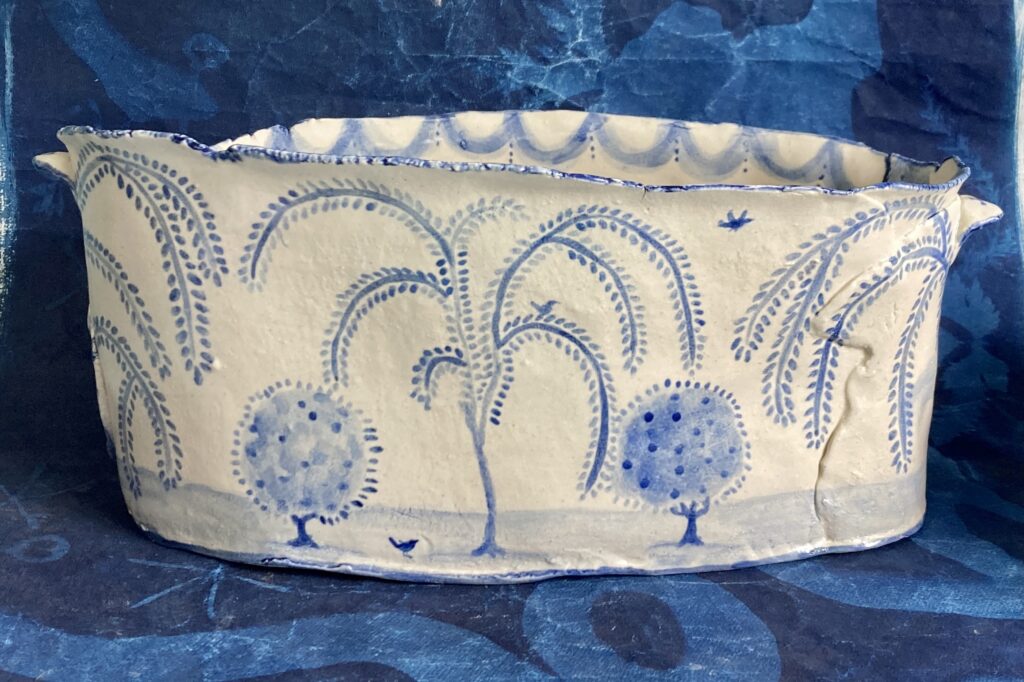
Maggie Robertson’s ceramics blend the stature of fine china with a sort of organic, ‘wabi-sabi’ imperfection that is oddly comforting. The traditional blue and white glazed bucolic scenes atop the hand-formed utilitarian objects makes for the perfect blend of new and old. Seen in the context of an ‘exhibition’, the works of Robertson become something else, more contemplative and sculptural.
Pacific Crest Trail: Sierra Snow Bridge (2018) by Annie Varnot is a bold and brilliant work that essentially communicates two truths. First, that our planet is home to countless awe inspiring vistas – at times indescribable beauty that we can not live without. Second, what we hold dear, what many of us live to experience, to feel, to see and touch is quite fragile, and what we do, how we over-consume, has a lasting negative effect on our environment.
Martin Weinstein’s paintings define the beauty in the rhythms of the seasons – the endless (hopefully) return of life in the spring, the brilliance of the summer, the temporary demise the fall brings to our vegetation, and the clear, crisp chill of winter – all that defines the Northeast is exquisitely expressed in Sun Dogs, 3X (2013) and Winter under Summer, Summer under Fall (2019). In each instance, Weinstein brings heaven back to earth.
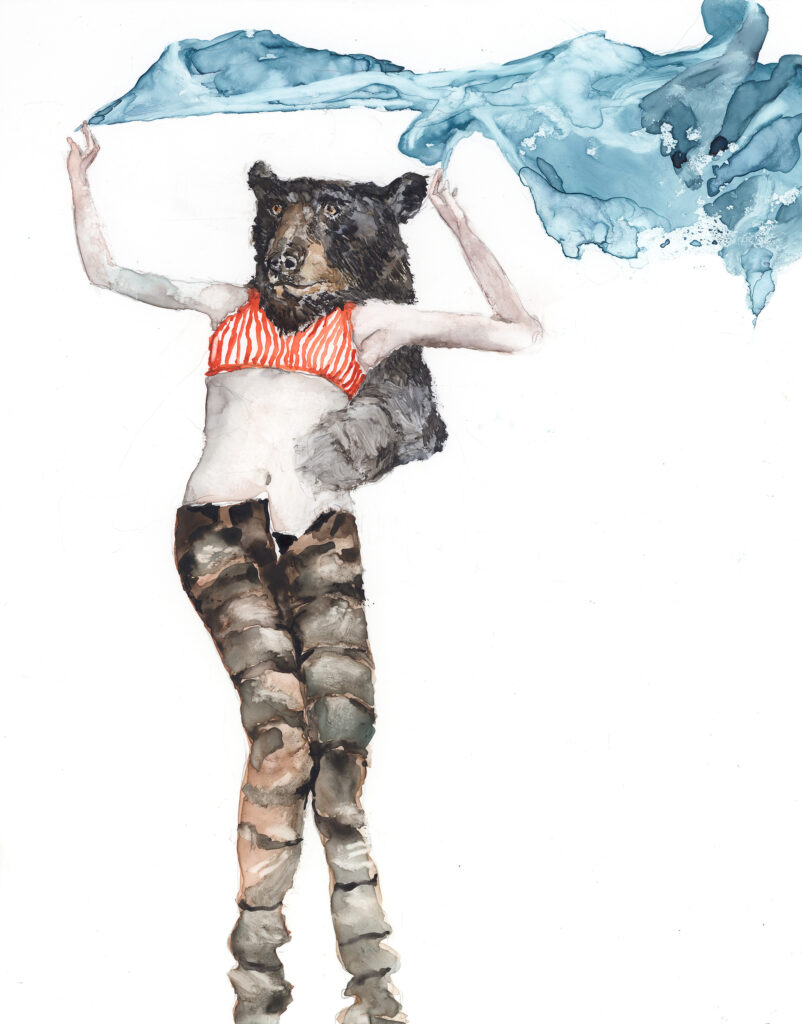
The compelling, albethey strange interactions with nature some of us humans might have or imagine come to life in the paintings of Shari Weschler. In Bending #1 (2017) we see what appears to be a burgeoning suburban backyard in spring-thaw mode. Bear Stand (Needs date) shows a young woman creating a sort of ‘Mother Earth’ in-body experience representing the sky, animals and land. Bridging (Needs date) is an obvious play-on-words with a twist, which has a vastly different read in these days of Covid.
Red Fox Contemporary art is located at 55 Westchester Avenue, Pound Ridge, NY 10576. LandX runs from May 22 through July 4, 2021. There is an opening May 22 from 3 – 6 pm. (475) 205-8956
